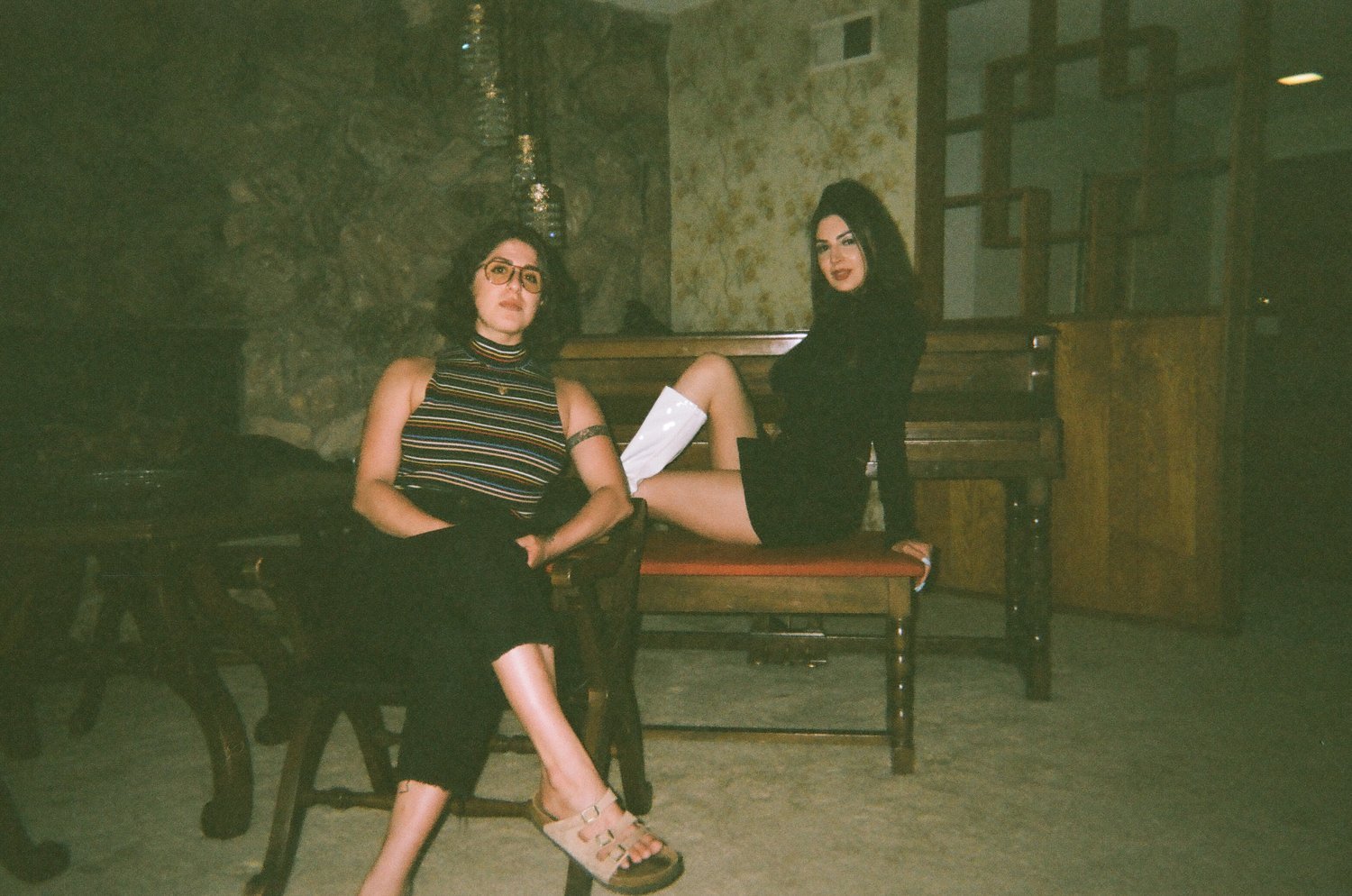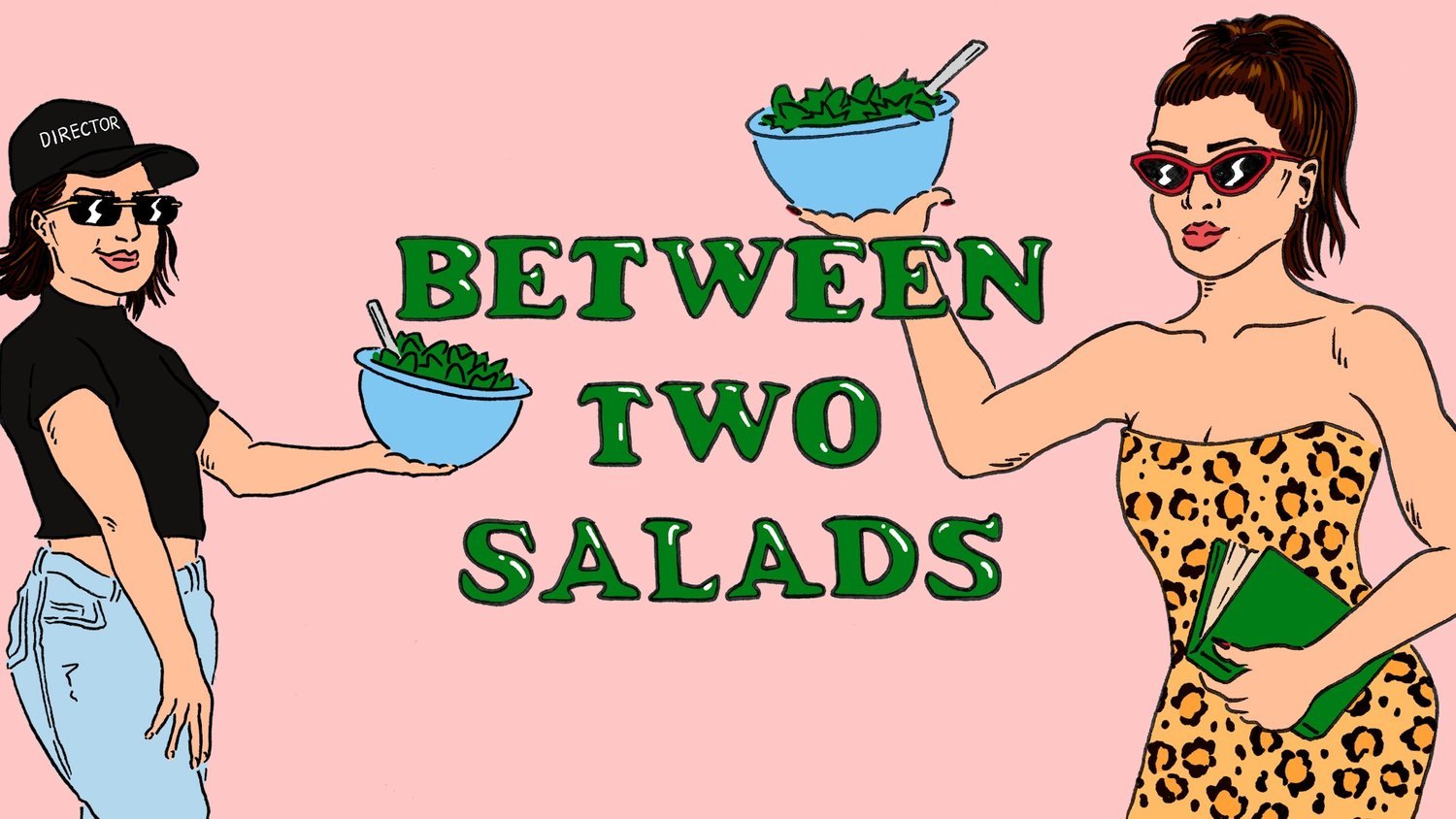Keeping up with MJ and Marie
Make it stand out
MJ and Marie are documenting the fast pace of modern celebrity culture, memes and social media. The news cycle means that today’s news is irrelevant tomorrow. Society as we know it could crumble in one hundred years. Without them, historians might look back and be bamboozled by the sheer power Pete Davidson held in 2021 and they would know nothing of the significance of Kim Kardashian’s BBL shrinking! Deux Moi’s blind items would be completely incomprehensible. Michele and Marie are creating accessible, analytical theory about the culture, for the culture.
Sisters MJ and Marie sat down with me to discuss all the things Kardashian_Kolloquium, the theory of celebrity, and the web series they created together, Between Two Salads. This interview launches our month long residency with the sisters, which includes a 3 part video series.
Your work reminds me of Mark Fisher, who frames his cultural theory within a pop culture lens. He uses classic and culturally renowned films like The Godfather and Children of Men. Do you think you ever get looked down on for your chosen analytical subject matters - e.g memes, celebrity culture and the Kardashians - and has that been an obstacle in getting people to take you seriously or contribute content because it’s seen as low brow?
MJ: Yes, there's a lot of shame, a lot of gatekeeping male academics and a lot of people who are very kind of anti culture and anti capitalism who seem to misunderstand my mission. There’s even been some women in super edgy meme scenes who have also taken issue with what I do because it's earnest. It's taking something very mainstream like the Kardashians who bridge the highbrow and the everyday, in a way that really appeals or engages the masses, and people think that is inherently alienating.
___STEADY_PAYWALL___
But they’re the perfect example to use because we all know them and a lot of people don’t like them for valid reasons. The thing about the Kardashians though is that when you engage with them, they end up being likeable, whether you want to or not. The people that spoke with us for the video essay we did were so gracious and they totally got it. But I've faced a lot of doors in my face trying to have my project taken seriously, and I'm just going to keep pushing forward.
Marie: Michelle has always been criticised for giving the Kardashians a platform too, and it's like, they're gonna be powerful whether or not we make content about them. So why not interrogate this thing that's in all of our faces? We shouldn't be consuming it passively, it’s irresponsible. It's more responsible to break it down as it’s in our faces all the time.
It’s interesting because at first the Kardashians were the exception, the first Instagram Influencers per se, and now they’re the golden standard for everything to do with social media. And there's no going back. They helped Instagram evolve into this all-seeing beast, they’ve shaped the internet. They’re the early pioneers of capitalising on social media.
MJ: They're the cheat code! And they're the original influencers, their trickle down business model, and their way of relating to social media is the model that influencers now use.
“It's taking something very mainstream like the Kardashians who bridge the highbrow and the everyday, in a way that really appeals or engages the masses, and people think that is inherently alienating.”
Obviously, you’ve been sisters for a while, how did your creative relationship come into being?
Marie: Michelle brought me in to just be part of the production of the video essay she was making about what iconic city best represents the Kardashians. We were going to Vegas with our grandma already. So we got a bunch of footage in Vegas, we did street questions and frantically ran about and shot footage when we weren’t with our grandma!
MJ: We realised the appeal of working with each other and kind of transcending the Kardashians a little and talking more generally about social media. Most of the guests we’ve had for season one would be down to talk about the Kardashians at length. We wanted to broaden the conversation about media theory and social media and scale it into something bigger and cross referential. If someone watches us talking about hyper reality and Kanye with YungNihlist, they can go and check out Kardashian Kolloquium memes and we can all have a collective conversation.
It’s been a trip to take the material as seriously as Marie and I do.
She brings a curated and polished beauty to it, in her editing and producing. In the web series we’re using a real set, and want high production quality, while still hopefully being chill and accessible because it's DIY still. But bring real theory and scholarship to the Kardashians and pop culture and try to do it in a beautiful curated way. It's just hard to keep up with the pace of the internet.
So how did the web series develop?
Marie: We filmed loads of footage for the Vegas video essay and Michele was like, “What if we did a higher level web series that is like based off my thing, but kind of expands? So it developed from there. Michele has loads of cool followers so she just hit those people up, a lot of them were down to talk to us. And then we planned episodes around other content creators we loved. So each episode has a central theme based on who the guest is. And the theme fits into a different media landscape!
There wasn't a hesitation like, should we do this? I was just like, Yeah, okay, what's the next step!
Do you find it easier to work together professionally because of the sister connection?
MJ: Yes. There's like five awkward conversations that are completely skipped, because it already happened. Telepathically.
Marie: I think it does just, fundamentally gel.
MJ: And meltdowns are more open!
Marie: Exactly! If any workflow problems arise we’re able just to hit it so head on. Yeah. There's messy and emotional sister vibes but it just means we can knead through problems so much easier.
I love the name - Between Two Salads. The Kardashians have branded themselves and everything they do so well that even the mere sight of a takeaway salad makes you think of them.
Marie: It was also a play off Between Two Ferns.
MJ: And also because Keeping Up With The Kardashians is like a big salad commercial. It's actually surprising they weren't sponsored by a salad company, but they do monetize brands like that. We just want to help people slow down. And notice where media and advertising has become entrenched, because if we don't extract it more, we will take it for granted. That's why there's value in what we do. Even though people love to shit on it, because it's Kardashians or pop culture or whatever, there’s value for sure.
Words: Eden Young



